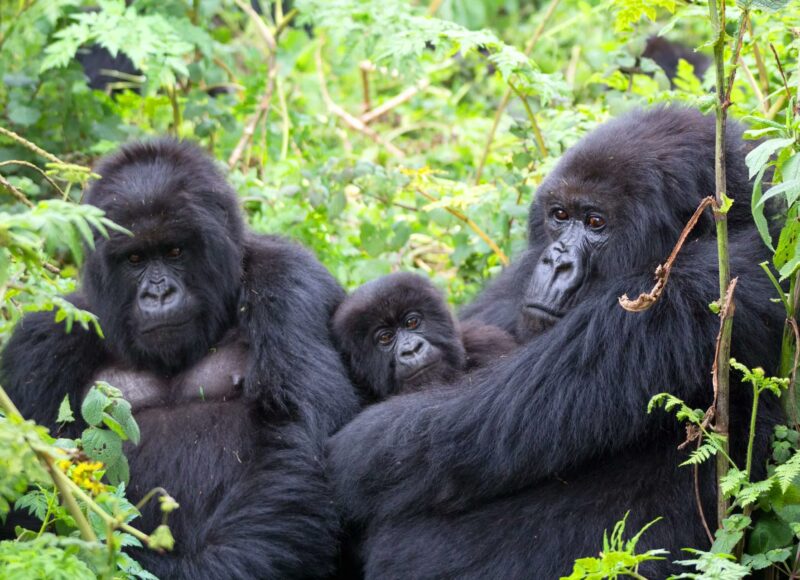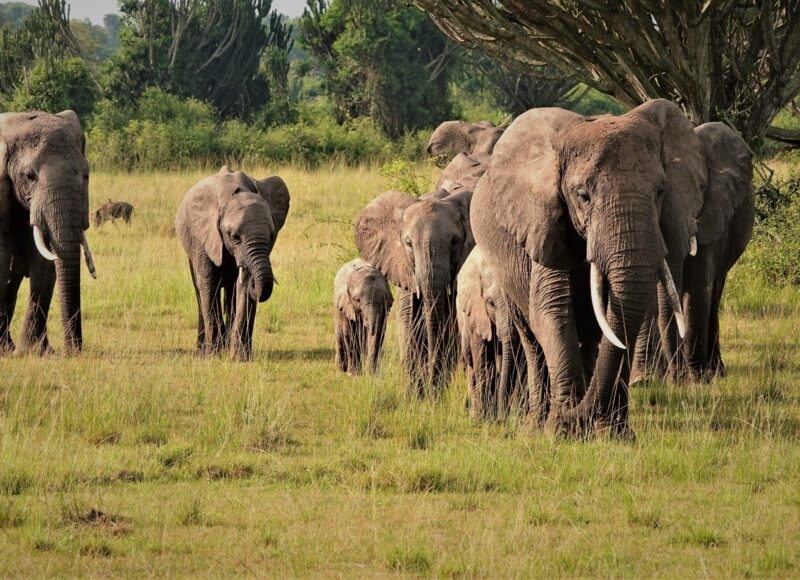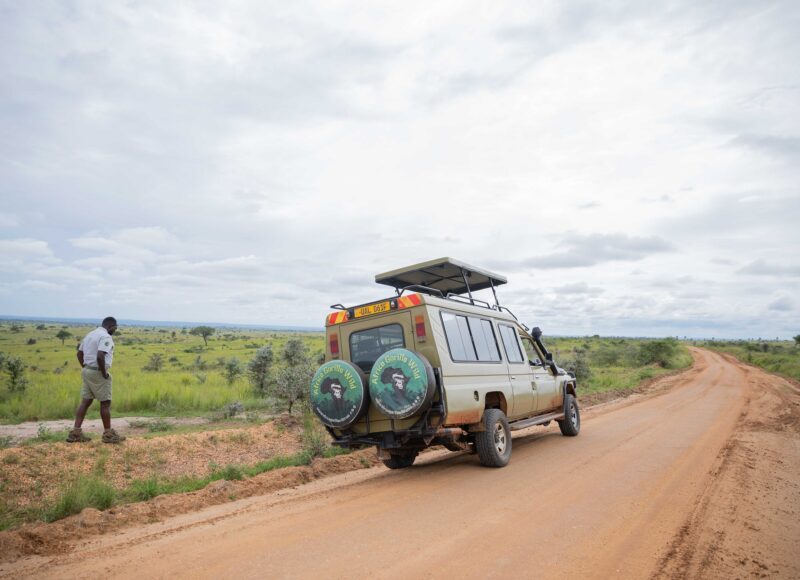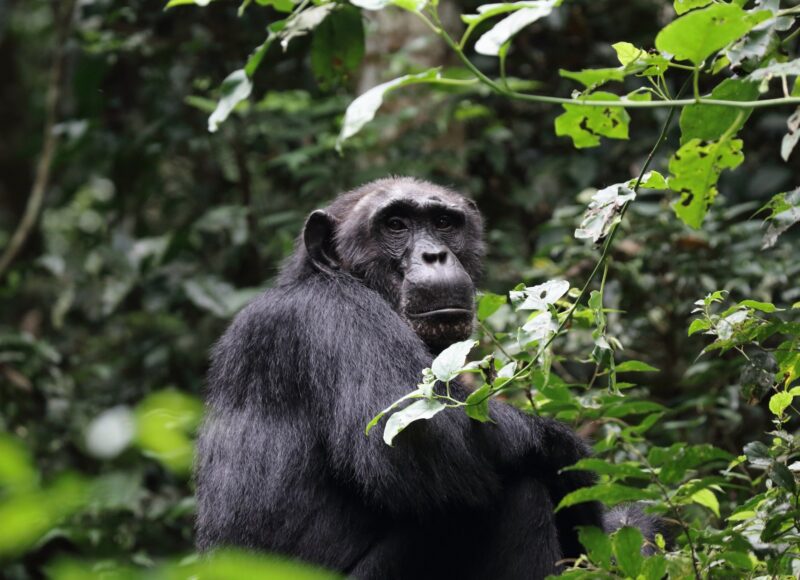Cultural Safari Experiences in Uganda and Rwanda
Cultural safari experiences in Uganda and Rwanda offer a rich tapestry of traditions, stories, and connections that transcend the typical wildlife adventure. These East African countries are not only havens for biodiversity but also cradles of diverse cultures that beckon travelers to delve deeper into their heritage. Guided by Africa Gorilla Wild, this exploration highlights the essence of cultural safari experiences in Uganda and Rwanda, emphasizing their significance, the unique opportunities they present, and their role in fostering sustainable tourism.
Popular Africa Gorilla Wild Safaris
Browse through our most Popular Africa Gorilla Trekking Safari 2025, 2026
8 Days Amazing Gorillas of Uganda Safaris
Combine visiting the endangered mountain gorillas with game safaris, boat cruise on the Kazinga Channel and an encounter with the chimpanzee all in one safari.
$ 3,863
12 Days Uganda Gorilla Classic Safaris
A combination of Gorillas, Chimpanzee, Game, Safari walks, boat cruises and community encounters to give you an ultimate safari experience in the Pearl of Africa.
$ 4,657
15 Days Uganda Classic Holiday
Explore Uganda’s top safari destinations and encounter the gentle gorillas in their natural habitat, meet with local people and stay at cozy lodges and hotels.
$ 5,678
5 Days Uganda Classic Safaris
$ 3,467
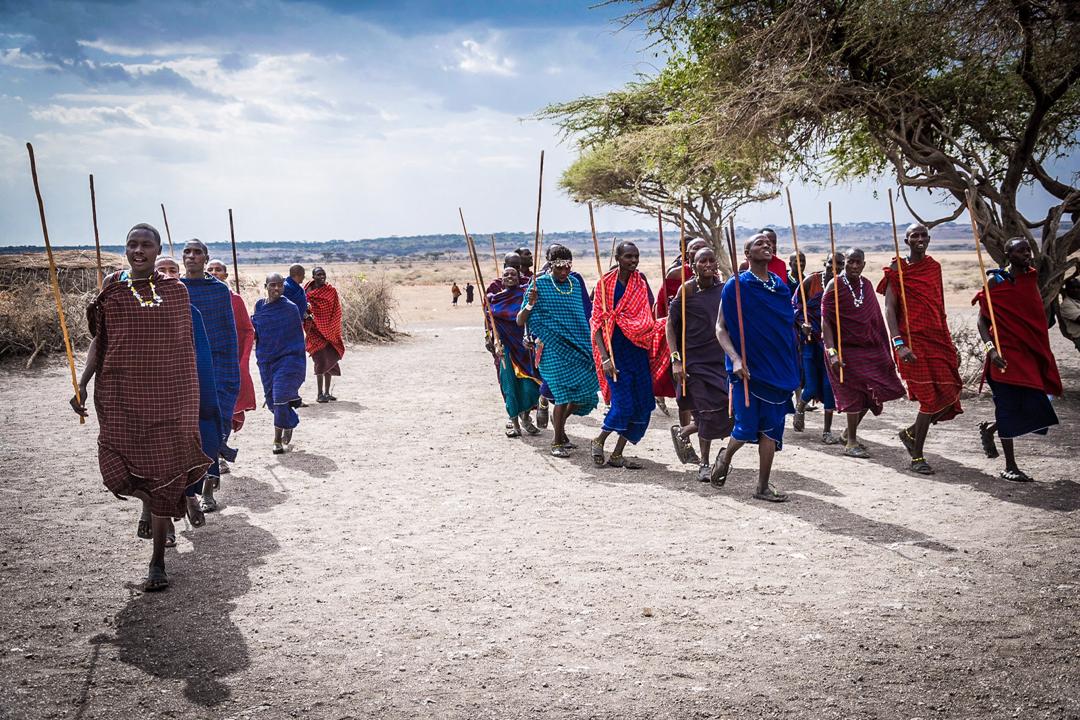
Karamojong Cultural Experiences
The Unique Allure of Cultural Safari Experiences in Uganda and Rwanda
Cultural safari experiences in Uganda and Rwanda provide travelers with an intimate glimpse into the lives of local communities. Unlike traditional safaris that focus solely on wildlife, cultural safaris emphasize the human stories that shape the landscapes and traditions of these nations. From ancient customs to modern-day practices, the cultures of Uganda and Rwanda are as vibrant and diverse as their ecosystems.
In Uganda, visitors can engage with the Batwa pygmies, one of the oldest indigenous groups in the region. Known as the “keepers of the forest,” the Batwa share their deep knowledge of the natural world through storytelling, music, and dance. Rwanda, on the other hand, offers insights into its resilient history through experiences like the Iby’iwacu Cultural Village, where traditional performances and crafts bring the country’s past to life.
Cultural safari experiences in Uganda and Rwanda also offer an opportunity to support community-based tourism initiatives. These experiences are designed to empower local populations, ensuring that tourism benefits both the visitors and the hosts. This unique blend of cultural immersion and sustainable tourism makes these safaris unforgettable.
Exploring Indigenous Communities
A cornerstone of cultural safari experiences in Uganda and Rwanda is the opportunity to visit indigenous communities. These interactions are more than just visits; they are exchanges that celebrate the rich heritage of the region’s first inhabitants.
In Uganda, the Batwa pygmies offer a window into a way of life that has remained closely tied to the forests for centuries. Displaced from their ancestral lands with the establishment of conservation areas, the Batwa now share their traditions as part of cultural tours. Visitors can learn about their hunting techniques, medicinal plant uses, and spiritual beliefs, gaining a deeper appreciation for their symbiotic relationship with the environment.
Similarly, Rwanda’s cultural safari experiences often include visits to the Intore dancers, whose mesmerizing performances are a tribute to the country’s ancient warrior traditions. These dances, accompanied by traditional drums, are more than entertainment; they are a means of preserving and passing down history. Travelers leave these encounters with a sense of respect and admiration for the resilience and creativity of these communities.
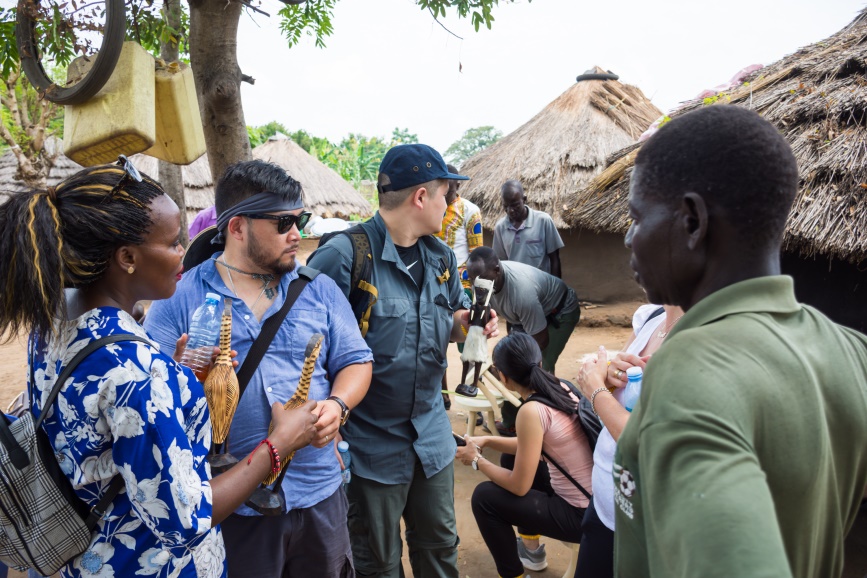
Local Village Visit
Heritage and History: The Role of Cultural Monuments
Cultural safari experiences in Uganda and Rwanda extend beyond villages to include historical and heritage sites that narrate tales of the past. These landmarks provide context to the cultural richness of the region and highlight the historical events that shaped its present.
Uganda’s Kasubi Tombs, a UNESCO World Heritage Site, stand as a testament to the country’s Buganda Kingdom. This royal burial site is a sacred space that reflects the spiritual and political significance of the Buganda monarchy. Guided tours offer insights into the rituals and traditions associated with the tombs, connecting visitors to Uganda’s regal history.
Rwanda’s genocide memorials, such as the Kigali Genocide Memorial, are poignant reminders of the country’s tumultuous past. These sites serve as places of remembrance and education, offering visitors a chance to understand Rwanda’s journey of reconciliation and resilience. Through these experiences, cultural safaris become a platform for learning and reflection, fostering a deeper connection with the region.
Culinary Adventures: Savoring Local Flavors
An integral part of cultural safari experiences in Uganda and Rwanda is the exploration of local cuisine. Food is a universal language, and sharing a meal with locals is one of the most authentic ways to connect with a culture.
In Uganda, matoke (steamed green bananas) and luwombo (a traditional dish steamed in banana leaves) are staples that visitors must try. Culinary tours often include visits to local markets, where the vibrant colors and aromas of fresh produce create a feast for the senses. Participating in cooking classes provides a hands-on opportunity to learn about traditional Ugandan recipes and their cultural significance.
Rwandan cuisine, on the other hand, is characterized by simplicity and flavor. Ugali (a maize-based dish) and isombe (cassava leaves cooked with groundnuts) are popular dishes that reflect the country’s agricultural heritage. Visitors can also enjoy coffee tours in Rwanda, exploring the journey of coffee from farm to cup while appreciating its role in the local economy. These culinary adventures are an essential aspect of cultural safari experiences in Uganda and Rwanda, adding flavor to the journey.
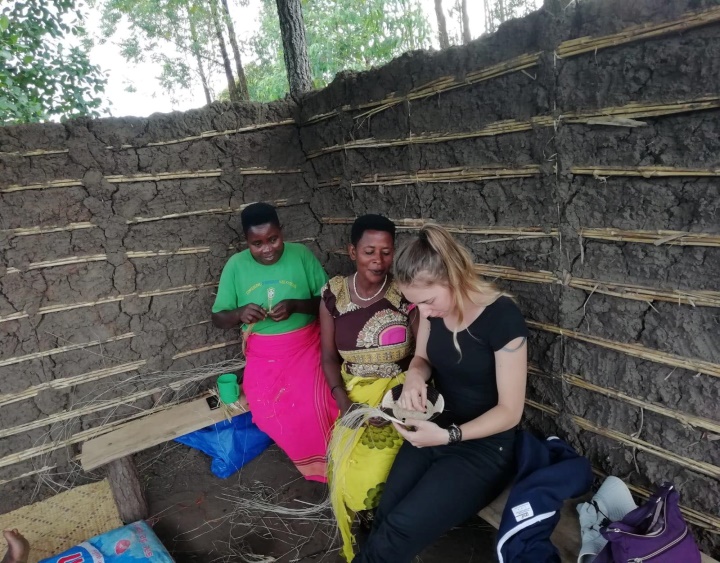
Visiting Local Women Group
Traditional Art and Craftsmanship
Cultural safari experiences in Uganda and Rwanda are enriched by the opportunity to explore traditional art and craftsmanship. These creative expressions are a testament to the skill and ingenuity of local artisans, offering visitors a chance to take home a piece of the region’s heritage.
In Uganda, the vibrant bark cloth made by the Baganda people is a unique art form recognized by UNESCO. This ancient craft involves harvesting bark from fig trees and processing it into a durable fabric used for clothing and ceremonial purposes. Visitors can witness the production process and purchase authentic pieces as souvenirs.
Rwanda’s traditional Agaseke baskets are equally iconic. These intricately woven baskets symbolize peace and reconciliation, reflecting the country’s values. Workshops and markets allow travelers to learn about the weaving techniques and the stories behind each design. Supporting these artisans through purchases not only preserves their craft but also contributes to their livelihoods.
The Role of Festivals in Cultural Safaris
Festivals play a significant role in cultural safari experiences in Uganda and Rwanda, providing a vibrant showcase of traditions, music, and dance. Attending a local festival is an immersive way to experience the cultural heartbeat of these nations.
In Uganda, the Nyege Nyege Festival has gained international fame for celebrating music and art from across Africa. While not traditional, it reflects the dynamic and evolving cultural landscape of the country. Traditional festivals like the Imbalu circumcision ceremonies among the Bagisu people offer a more historical perspective, steeped in age-old rituals and significance.
Rwanda’s Umuganura Festival, also known as the National Harvest Day, is a celebration of unity and gratitude. This festival highlights the importance of agriculture in Rwandan culture and provides a platform for communities to come together in song, dance, and feasting. Participating in such events allows visitors to witness the joy and pride of the local people.
Conservation and Community Empowerment
Cultural safari experiences in Uganda and Rwanda are intrinsically linked to conservation and community empowerment. By engaging with local cultures, travelers contribute to sustainable tourism practices that benefit both the environment and the people.
Organizations like Africa Gorilla Wild prioritize community-based tourism, ensuring that the revenue generated from cultural safaris supports education, healthcare, and infrastructure development. This approach fosters a sense of ownership and pride among local populations, encouraging them to preserve their traditions and natural resources.
The integration of cultural and ecological tourism also highlights the interdependence between communities and their environments. By choosing cultural safari experiences in Uganda and Rwanda, travelers become advocates for sustainable development, leaving a positive impact on the places they visit.
Preparing for a Cultural Safari Experience
Preparation is key to making the most of cultural safari experiences in Uganda and Rwanda. Travelers should research the customs and etiquette of the communities they plan to visit to ensure respectful interactions. Dressing modestly and learning a few phrases in the local languages can go a long way in building rapport.
Engaging with reputable tour operators like Africa Gorilla Wild guarantees a well-organized itinerary that balances cultural immersion with comfort and safety. Packing essentials such as comfortable walking shoes, a journal for reflections, and a camera ensures that the memories of these experiences are well-preserved.
Conclusion: A Journey of Connection and Discovery
Cultural safari experiences in Uganda and Rwanda are more than just a travel itinerary; they are a journey of connection and discovery. By immersing themselves in the traditions, stories, and daily lives of local communities, travelers gain a deeper appreciation for the region’s heritage and resilience. Guided by Africa Gorilla Wild, these experiences offer a perfect blend of authenticity and sustainability, leaving a lasting impression on both the visitors and the hosts.
Whether it’s dancing with the Intore warriors, savoring a bowl of matoke, or marveling at the artistry of a handcrafted Agaseke basket, cultural safari experiences in Uganda and Rwanda promise memories that transcend the ordinary. Embark on this enriching adventure and discover the soul of East Africa.


